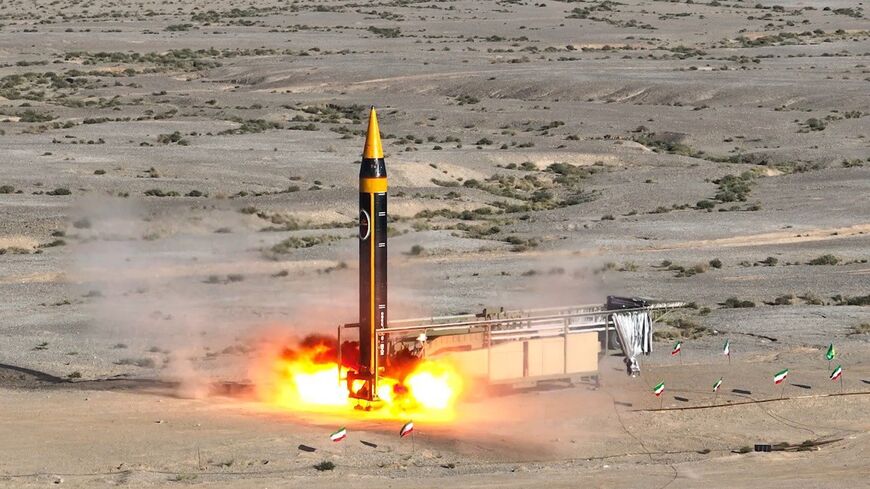TEHRAN — Iran said on Thursday that it had "successfully test-fired" a precision-guided ballistic missile with a range of 2,000 kilometers, (1,250 miles), capable of carrying multiple warheads as far as Israel and evading "enemy" radars.
The Kheibar missile is an upgraded version of its ancestor, the Khorramshahr, which was unveiled in 2017, according to the state-linked Tasnim news agency. "It is one of the most advanced missiles ever designed by experts at the Aerospace Department of the Defense Ministry," Tasnim stated.
Detailing other features of the 13-meter-long missile, Iranian media also said it adjusts its trajectory outside the atmosphere and has a launch time of less than 12 minutes.
Today, Iran tested a 4th gen Khorramshahr ballistic missile, named Khaibar, at an undisclosed location.
State media said the missile has a range of 2,000 kilometers with a 1,500-kilogram warhead. pic.twitter.com/9fu7rMzwN6— Holly Dagres (@hdagres) May 25, 2023
The launching ceremony was led by Defense Minister Mohammad Reza Ashtiani and broadcast live on state television.
"We are committed to the full defense of our nation and the Islamic Revolution's achievements," the brigadier general declared, repeating Iran's official doctrine that its missile program is solely of a deterrent nature. The argument, however, has long been met with growing concerns from Tehran's Western adversaries, its regional rivals and Israel, all of whom consider the Islamic Republic's missile and nuclear programs destabilizing threats.
Tehran denies the charge, yet it has on multiple past occasions unveiled ballistic missiles with messages for Israel. "Death to Israel," read markings in Hebrew on one such missile as recently as February. The incendiary rhetoric has also been advanced by Supreme Leader Ayatollah Ali Khamenei with a famous promise to "flatten" the Israeli cities of Haifa and Tel Aviv.
Only three days into the latest missile test, The Associated Press, relying on satellite imagery, reported that Iran had covertly constructed a nuclear facility under mountains near its key enrichment center in Natanz.
"There are possible negative developments on the horizon that could lead to action," said Lt. Gen. Herzi Halevi, chief of general staff of the Israel Defense Forces, at a policy meeting on Wednesday, according to Israeli reports. "We have the ability to strike Iran," he said, adding that his country was closely monitoring Tehran's nuclear activities.
The facility, reported AP, is deep enough to possibly remain out of the reach of American weapons.
Iran's atomic chief, Mohammad Eslami, however, has vehemently denied those details as a "psychological war" waged by Israel. "Such nuclear projects, if any, would be arranged with the UN nuclear watchdog," he said.








